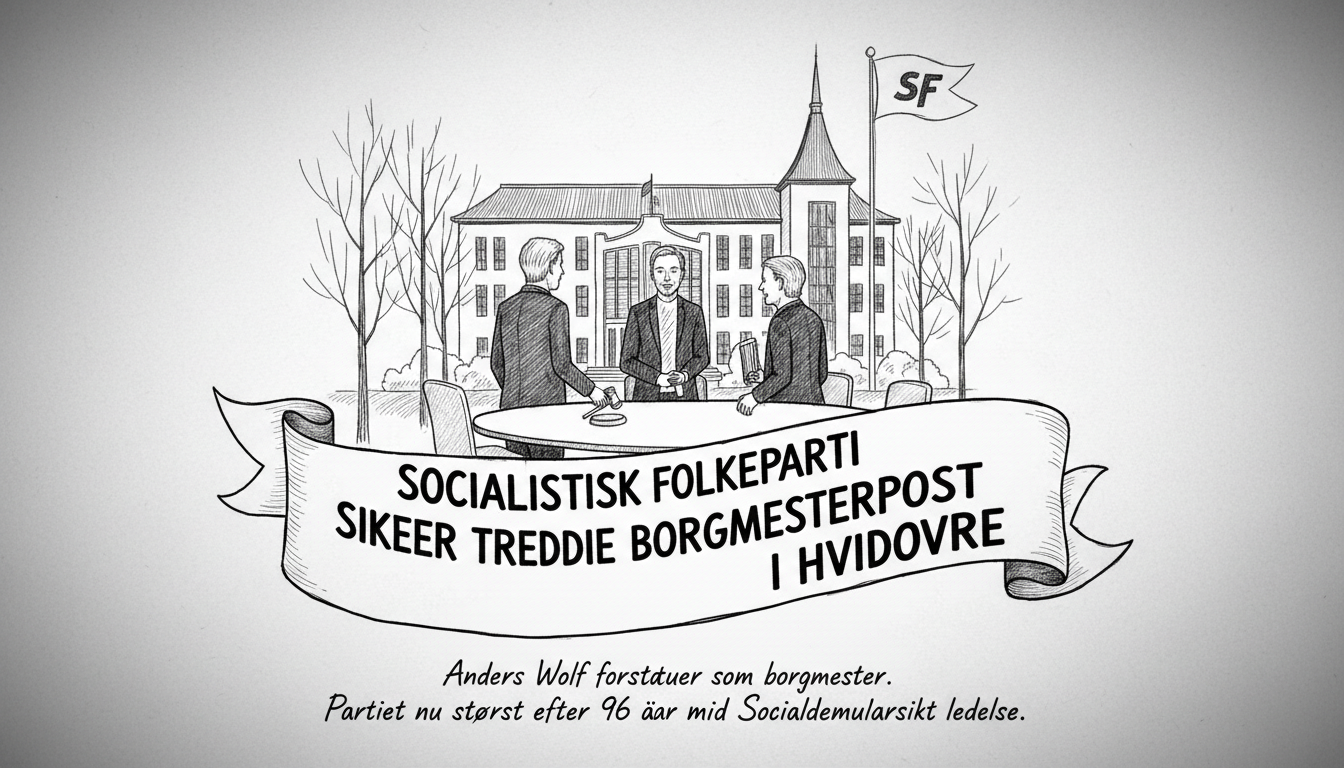Anders Wolf will continue as mayor of Hvidovre Municipality. He confirmed this decision in a statement released overnight. The Socialist People's Party now holds three mayoral positions following the local elections. This represents one more mayoral post than the party secured in the previous election cycle.
The political alliance supporting Mayor Wolf includes multiple parties. Conservative parties, centrist parties, and local lists have all backed his leadership. This broad coalition demonstrates the complex political landscape in Danish municipalities.
Party leader Pia Olsen Dyhr had prioritized maintaining the Hvidovre mayoral position. Her focus on local government positions reflects the party's strategic emphasis on municipal influence. The Socialist People's Party achieved substantial gains in both municipal and regional elections. They captured 26.5 percent of votes in Hvidovre, an increase of 11 percentage points compared to four years ago. The party secured six of the 21 seats on the municipal council.
This electoral performance marks a significant shift in local political dynamics. The Socialist People's Party has overtaken the Social Democrats as the largest party in the municipality. The Social Democrats, led by top candidate Anders Liltorp, experienced a decline of 10.3 percentage points. They received 24.6 percent of votes cast.
Wolf previously captured the Hvidovre mayoral position four years ago. That victory ended 96 years of continuous Social Democratic leadership in the municipality. The historical significance of this political shift cannot be overstated. It represented a fundamental change in local political traditions.
In the previous election cycle, the Socialist People's Party and Social Democrats together held a majority. Wolf chose to bypass the Social Democrats when forming his governing coalition. He assembled support from left-wing parties, conservative parties, and local lists. This move displaced Social Democrat Helle Moesgaard Adelborg from the mayor's office.
Municipalities must hold constituent meetings between December 1 and December 15. Negotiations about mayoral positions can technically continue until these meetings occur. The current early agreement provides political stability for Hvidovre.
Danish local politics often feature complex coalition-building. The Hvidovre situation illustrates how smaller parties can leverage their position in fragmented political landscapes. International observers might find interest in how Danish municipalities operate differently from other systems. Coalition governments at the local level require constant negotiation and compromise.
The Socialist People's Party's success reflects broader trends in Nordic politics. Left-leaning parties are gaining ground in urban municipalities while facing challenges in rural areas. This urban-rural divide appears across Scandinavia, though with different party configurations in each country.
What does this mean for Hvidovre residents? The continued leadership under Wolf suggests policy consistency. The broad coalition supporting him indicates that diverse political factions found common ground. This stability benefits municipal planning and service delivery.
The real test will come when the new council begins its work in December. The distribution of committee positions and policy priorities will reveal the practical implications of this political arrangement. For now, the Socialist People's Party can celebrate consolidating their position in one of Denmark's significant municipalities.

